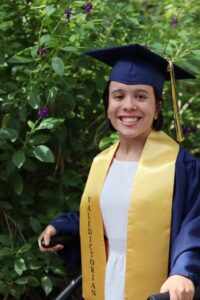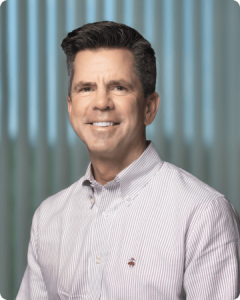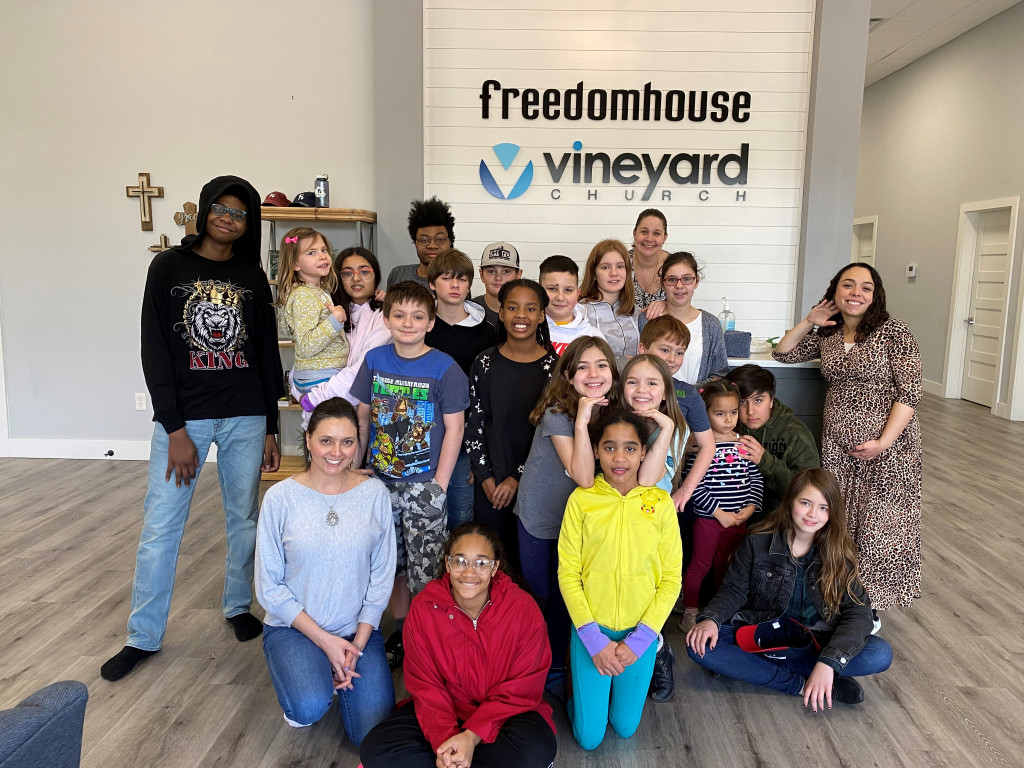Tiovanni Johnson squirms in his chair and lowers his head. His grandmother is telling a story about his kindness toward strangers, and he wishes she would stop. In fact, he asked her to stop.
“This is embarrassing,” he said.
She continued.
The previous day, Angela brought two Slim Jims with her when she picked up Tiovanni from school.
“I love Slim Jims,” he said.
They stopped at a light on the ride home. Tiovanni noticed a man panhandling at the intersection. He appeared hungry, so Tiovanni leaned out the window and gave the man his favorite snack.
“He does this all the time no matter where he is,” Angela said. “He’s so thoughtful.”
At a skatepark a few days earlier, Tiovanni spent most of his time helping younger kids who had trouble staying on their skateboards.
Tiovanni appeared as if he would rather be anywhere else than in the conference room at his school, Academy Prep Center of St. Petersburg, listening to his grandmother brag about him.
But there are some things a boy can’t stop.
And when asked about the praise, Tiovanni reluctantly admitted, “It makes me feel good.”
Tiovanni, 12, is in the seventh grade at Academy Prep. This is his second year attending the grades 5-8 private school located three miles from the Gulfport home he shares with his aunt and uncle, Tricia and Ralph Huckeba. They became Tiovanni’s legal guardians after his mom, Deborah, died unexpectedly when he was 6.
Tiovanni attends Academy Prep on a Florida Tax Credit Scholarship, made possible by corporate donations to Step Up For Students.
Year 1 was a feel-good story for Tiovanni. He made the honor roll, joined Academy Prep’s swim team and began the 2024-25 school year with a 4.0 GPA for his work over the summer.
Tricia and Ralph, along with Angela, wanted Tiovanni to attend a school that would challenge him academically and help guide him through the tricky middle school years.
“Everybody here is so caring, truly caring,” Tricia said. “This school is very accommodating for the students, very loving, God-fearing people.”
Tiovanni tells his teachers that when he grows up, he wants to do something “magnificent.” He’s not quite sure what that means other than it will include a college education.
“I’m going to make sure I get straight A’s so I can go to college,” he said.
He’d like to study music, he said. He’d also like to learn to play the drums.
“They speak to me,” he said.
He wants to fly in a plane.
And learn to do an “ollie” with his skateboard. That’s the move where the rider jumps in the air with his feet still on the board but without using his hands. Tiovanni is working on it.
And he wants to travel.
Tiovanni wants to take Angela back to her birthplace, Cairano, a dot-on-the-map city in the mountains of Italy.
His life will be epic. Tiovanni is sure of that.
“I want to do something wonderful so my aunt and uncle don't have to work, so they can go on vacation somewhere,” he said.
He writes poetry.
I'm cool, but sometimes I act like a fool.
He described himself as “short” and “fast” and “energetic.”
“I can be a little annoying sometimes,” he added.
Tiovanni likes to be challenged academically, as evident by this year’s class schedule filled with honors courses. He’s in the right academic setting for that since Academy Prep is designed so students get the most of their educational opportunity.
He can also be more of a deep thinker than someone his age.
The family attends BridgePoint Church in St. Petersburg. Tiovanni often takes notes during the service and shares them with everyone at lunch afterwards. Tiovanni said he’s writing down “wisdom.”
“It’s just amazing some of the things that he thought about, because it would be his interpretation of what the pastor said,” Tricia said.
Tiovanni is reluctant to talk about his mom.
“That’s a sensitive topic,” he said.
It’s a sensitive topic for Angela, as well. She gets emotional when talking about her youngest daughter, who passed in 2019.
“She’s gone, but she left a special gift,” Angela said, nodding toward Tiovanni.
Brittany Dillard, Academy Prep’s Assistant Head of School, has known Tiovanni and his family since her son and Tiovanni were first-grade classmates. That was the year Tiovanni’s mom died and Tiovanni, whose father is not in his life, went to live with Angela. Dillard had the first-graders make cards for Tiovanni.
“Tiovanni has always just been spontaneous and optimistic and just a joy to be around,” Dillard said. “He's inquisitive. He asks a lot of questions, and he is just, honestly, a person that you want to have around if you're having a bad day, because he's going to find some way to cheer you up and just bring some sort of joy into your life.”
Like handing his afterschool snack to someone who looked hungry.
“I felt in my heart that that's what I needed to do,” Tiovanni said, “and that’s what I did.”
SARASOTA, Fla. — It was time for the valedictorian to address the assembly, so Emma Howey rose from her seat in the front row of the auditorium, left her walker behind, and, with the help of her favorite teacher, made her way to the edge of the stage.
 “I can’t believe I’m doing this,” she remembered thinking last May as she graduated from CES Academy of Bradenton.
“I can’t believe I’m doing this,” she remembered thinking last May as she graduated from CES Academy of Bradenton.
Emma was born with cerebral palsy and has used a walker since she was 3. But, two years earlier, at the end of her sophomore year, Emma set a goal of walking across the stage at graduation.
Emma’s only concession was that CES Academy teacher Charlie Stephenson would walk beside her holding her hand to help her balance. The rest would be all Emma, the result of 24 months of carefully planned occupational and physical therapy.
Also, determination.
And grit.
Emma’s walk of a lifetime required her to climb the six steps to the stage, turn left, and then walk 25 steps to the podium.
“I gotta do this,” she remembered thinking when she reached the foot of the staircase.
And she did.
The audience clapped, and someone shouted, “EMMA!” as she marched before them. She smiled as her goal became reality.
Emma’s voice grew with confidence as she read her speech that ended with this message:
“Graduates, always remember to keep focused, don’t lose hope, and never give up.”
A few minutes later, Emma made the trip again, this time to receive her diploma.
“It was,” she would tell her family afterward, “the best night of my life.”
A big idea
Emma, now 19, attended CES Academy with the help of the Family Empowerment Scholarship for Students with Unique Abilities. Managed by Step Up For Students, the scholarship functions as an education savings account (ESA), which gives families more flexibility in how they spend their students’ funds. Over the years, Emma has used the ESA to purchase a therapy swing, an exercise trampoline, and an iPad. It paid for her hippotherapy, a type of equine-assisted therapy. The ESA also covered tuition at her private K-12 school that serves children with educational exceptionalities.
“I really learned to be on my own there,” she said.
Emma, who lives in Sarasota with her mom, Jennifer, attended her district school through the fifth grade but struggled with the large class sizes. Navigating hallways was difficult given the number of students trying to get to classes. Opening doors can be a chore for Emma, and her schoolmates weren’t always eager to lend a hand.
CES Academy could better accommodate her needs, especially when she met Charlie Stephenson.
“He always focused on what I could do, instead of what I couldn't. That was something different,” Emma said.
Emma thrived in CES Academy’s academic setting. She was an honor student who tutored other students and was a star in the school’s Mighty Knights program, where juniors and seniors were paired with K-3 students.
“Emma was awesome working with those little kids,” said Mike Van Hoven, who was CES’s principal last year and now teaches science at the school.
Emma was born prematurely and suffered a brain injury at birth, that led to cerebral palsy which affects most of her muscles. She also has neuromuscular scoliosis. She’s had surgeries to lengthen her legs and to correct fatigue in her eye muscles. She wears braces on her legs while using her walker or crutches.
 She also plays the piano and can speak Spanish, Italian, and sign language. Among the items on her bucket list are trips to Paris and Italy.
She also plays the piano and can speak Spanish, Italian, and sign language. Among the items on her bucket list are trips to Paris and Italy.
She loves to swim.
“I can walk in the pool. I still don't understand that,"” she said. “How can I get on land and not do it? It's like the reverse Ariel, like the Little Mermaid.”
Emma is currently in vocational rehab as she looks for a job. She’s applied for positions to work the front desk at a hotel, the reception desk at a nursing home, and for a position at a library.
“I’m a people person,” she said.
Emma refers to herself as disabled but won’t let that define her.
“I don't let that limit me (trying) to be the best of my ability,” she said. “There’s stuff I can't do, but I try not to let that get in the way.”
One thing that does get in the way is her walker when it comes to climbing stairs. She always stood in front of the stage when she received awards at school while her classmates walked across the stage.
In 2019, Emma’s brother Jonathan graduated from high school. She watched him walk with his class and had an idea.
‘This is going to happen’
Ouida Wellenberger was a physical therapist and Sharon Yadven was an occupational therapist at Kidspot in Palmetto. They worked with Emma for years.
Emma told them about watching Jonathan walk with his class.
I want to do that,” Emma said.
“Let’s go for it,” Wellenberger said.
“This is going to happen,” Yadven said.
In 2022, the three began working toward that goal.
Emma’s mom, Jennifer, knew it was an ambitious quest. Could her daughter physically reach such a demanding goal? Possibly. After all, this is the same girl who spent one summer learning to hit a pitched baseball from Jonathan after she learned she was the only player in her age group in the Miracle League of Manasota still hitting off a batting tee.
“She's always been very strong-willed and determined,” Jennifer said. “She’s done a lot of things in therapy that she did not like, but she knew she had to do it, so she did it.”
“No matter what we threw at her, she accepted it, worked on it, and did it,” Wellenberger said. “The neat thing was that it was her goal, and it wasn't someone else’s.”
Team Emma immediately went to work on increasing Emma’s strength and stamina with incredible attention to detail. They walked the city block from Kidspot to the old Palmetto library to build Emma’s tolerance. They used the stairs in front of the building to strengthen Emma’s legs so she could lift them high enough to clear a step.
Once Emma decided Stephenson would walk with her, Yadven walked alongside Emma with her left hand at the same height as Stephenson’s so Emma was used to holding her right hand at that height.
Emma practiced letting go of Stephenson’s hand so she could turn and receive her diploma with her right hand.
A few months before graduation Emma learned she was valedictorian. That threw a wrench into the plans. Now Emma had to build endurance so she could stand for three minutes, which was the allotted time for her speech.
And walk across the stage – twice.
Emma has a startle reflex, which is an involuntary response to sudden noises. Because of that, Wellenberger and Yadven blasted “Pomp and Circumstance” and “He's a Pirate” from the movie “Pirates of the Caribbean” to get Emma used to sudden noises she might hear on her big night, like someone shouting her name as she walked across the stage or the standing ovation she received after her speech. That could cause her to lose her balance.
“We covered everything and more because we wanted to overprepare,” Emma said.
Stephenson attended a couple of Emma’s therapy sessions to practice the walk. Wellenberger and Yadven visited Bayside Community Church in Bradenton – the site of the graduation ceremony – to measure the height and width of the steps to the stage.
“So many things that so many of us take for granted, she has to work really hard to do, and she did not falter in her commitment toward working toward that goal,” Yadven said. “And not only did she not falter, really, but she grew in her determination and her excitement. It was an amazing process to share with her.”
‘I feel I can do anything’
Emma wasn’t sure how to approach Stephenson about assisting her, so she wrote him a letter. She explained how much he meant to her and why he was the right person for the job. Stephenson cried when he read it.
“I was overwhelmed,” he said. “It was a huge honor.”
Then Stephenson left his job at CES Academy and returned to his native Michigan to attend to a personal matter. But he told Emma he would be back for graduation.
“There wasn’t a chance I was going to miss that,” said Stephenson, who retired as a teacher after last school year. “I couldn’t have asked for a better sendoff from my teaching career. It was magical.”
Van Hoven, her former principal, said in his 40 years of teaching he’s never had a student whom he respected as much as he respected Emma.
“Every teacher in that school, she’s touched their heart,” he said.
Emma’s walk was the talk of CES Academy of Bradenton’s 2024 graduation.
“In the sense of goal setting, that proved to me and everyone else that I have the ability – anyone has the ability – to set a goal and hit it, no matter what obstacles,” Emma said. “I feel I can do anything, really.”
One size doesn’t fit all when it comes to student learning, and the same is true for the universal education savings account (ESA) programs that nine states adopted this past year.
Some, like Iowa’s, are limited and for that reason, easy to administrate. All students receive the same amount of money from the state, and all must be enrolled at accredited private schools. Tuition and fees must be paid before money can be spent on anything else. Leftover money, if any, may be spent on textbooks, tutoring, cognitive skills training, testing fees, college admission exams, tuition and fees for private online learning programs, educational services and therapies, and vocational and life skills education. This list is much more restrictive than most states with ESAs.

Robert Enlow, president and CEO of EdChoice
“It’s an ESA in name, but Iowa is essentially a voucher program that uses ESAs as a mechanism,” said Robert Enlow, president and CEO of EdChoice, a national nonprofit education choice advocacy organization. Iowa’s program is also being phased in over three years, with income limits during the first two years.
On the other end of the spectrum are open-ended states like Arizona, where parents are free to allocate their scholarships for a wide range of uses, and students have the option to attend multiple schools, no school at all, or a broad spectrum of customized options in between.
Then, there’s Florida. It’s complicated.
Since universal eligibility became law in March, more than 400,000 students have been awarded ESAs. Roughly 350,000 students are using them. That’s more ESAs than in every state in the nation combined. It’s also the product of two decades of continuous growth of scholarship programs that started small and targeted, but gradually grew to serve more students with broader eligibility.
The Sunshine State now offers multiple scholarship programs that are funded by different sources. The amount of money each student gets varies based on where his or her family lives. There are 402 different scholarship amounts for the three largest programs. Students with unique abilities are allowed more spending flexibility for goods and services to accommodate their special needs. Other students have varying degrees of flexibility depending on which program they use.
Verifying family information is also a bigger challenge in the Sunshine State.
Unlike Iowa, Florida has no state income tax and accompanying records to verify families' incomes, residency and household size, which slows the approval process and makes it more difficult to automate. Scholarship organizations in Florida must receive and verify documents from families to verify this information, in addition to unique abilities classifications.
Also, unlike Iowa, Florida’s ESA program allows some families to forgo full-time enrollment at brick-and-mortar schools and opt for a mix-and-match of services to create customized education plans for their children. Iowa also does not allow families to purchase approved items out of pocket and then be reimbursed. Florida requires scholarship organizations to do so. Last year Step Up received on a average between 10,000 and 20,000 reimbursement requests per week and processed them on average in about two weeks.
The result for Florida: richer benefits for families but more administrative challenges.

John Kirtley, chairman of Step Up For Students
John Kirtley, chairman of Step Up For Students, which administrates most of Florida’s K-12 education scholarship programs and hosts this blog, offered some advice for states who intend to follow the likes of Iowa or Arkansas and establish new scholarship programs.
“Try to keep these programs as simple as possible,” he said. “The more complex you make them, the harder they are to manage.”
Kirtley and Enlow made these remarks as members of a panel discussing ESA implementation at Harvard University’s “Emerging School Models” conference, which also addressed topics of microschools, hybrid homeschools, classical charter schools and virtual schools. Florida Education Commissioner Manny Diaz Jr. was among the keynote speakers.
In addition to complexity, speed can also contribute to difficulty administering ESA programs. Florida has approved or expanded scholarship programs almost every year. In late March of 2023, Gov. Ron DeSantis signed HB 1 and made every K-12 student in Florida eligible for an ESA. Scholarship funding organizations had 60 days to put everything in place so students could sign up in time to get their funds for the 2023-24 academic year. Kirtley said IT crews completed months of development work — if not more — to develop the infrastructure needed for such a huge scaleup.
“We have the best commissioner; we have the best legislature; we have the best governor as it relates to education freedom,” Kirtley told the conference. “One outgrowth of that is that things move very quickly; things move very expansively, and that leads to complexity.”
In Florida, a key priority in future years will be looking for ways to simplify programs while giving families access to a diverse range of options.
“It’s a very laborious, complicated process in Florida, and we have to find ways to simplify it for the benefit of families and the state,” he said. “But the great thing is we have people like the (education) commissioner, people like our governor, our Senate president, and our (House) speaker, and I think they share my goal of making these things work really well.”

Melody Bolduc, (left, kneeling) with her students and staff. Bolduc founded KEYS Educational Resource Center to supplement homeschoolers' educational experience. Photo courtesy of Melody Bolduc
On this episode, reimaginED senior writer Lisa Buie talks with Melody Bolduc, a homeschooling mother of two daughters and founder of KEYS Educational Resource Center, a faith-based tutoring center for homeschoolers in Jacksonville, Florida.
Bolduc says how she wanted to be a teacher as early as first grade, when she and her friends would play school most afternoons. Bolduc felt drawn to teaching because she perceived teachers as having autonomy in their jobs. Bolduc went on to tutor classmates, including a girl she later realized had special needs that caused her to struggle with spelling. After working in district schools, Bolduc opened KEYS Educational Resource Center after becoming a mom so she could better fulfill family responsibilities. She started KEYS after a couple of friends asked her to tutor their homeschooled children.
“I would go over to (my friend’s) house once a week, and we would practice on a little chalkboard. We would practice, and practice and practice. I remember the first time she passed the spelling test, and I loved that I was able to teach her something.”
https://nextstepsblog.org/wp-content/uploads/2022/10/Reimagined.bolduc_mixdown-final.mp3
EPISODE DETAILS:
RELEVANT LINKS
Bolduc’s presentation at the 2022 Liberation of Education Conference
https://www.youtube.com/watch?v=dRDNUNZRkyU&list=PLT5UPtq10X0xnK6yFs5FgRPDOh8-EM843&index=7
KEYS Educational Resource Center
https://www.keyserc.org/